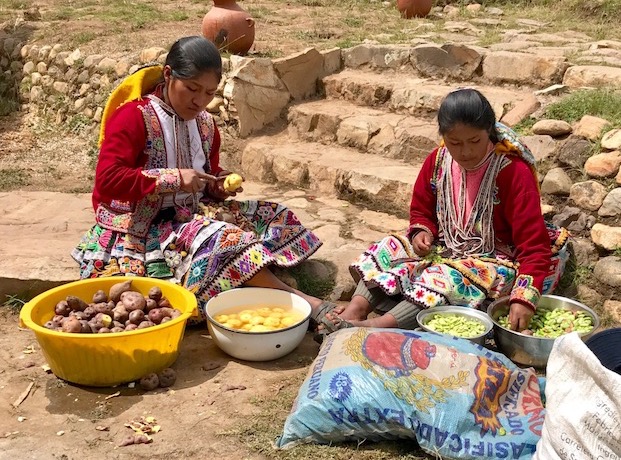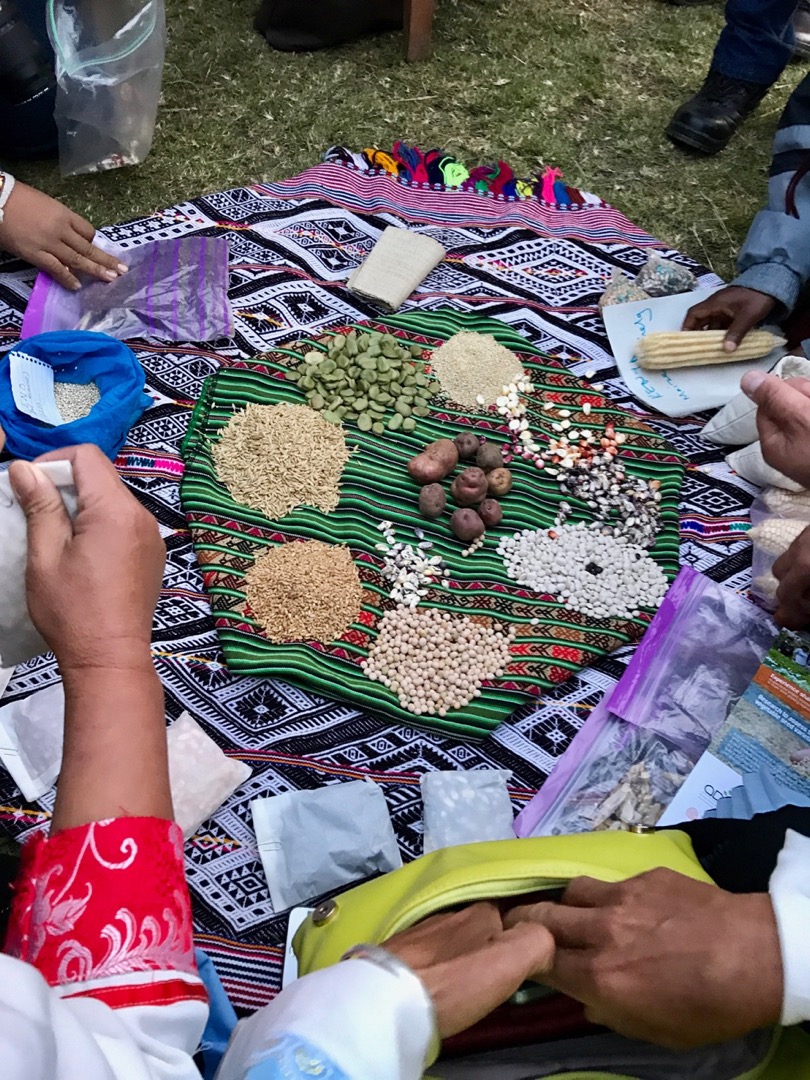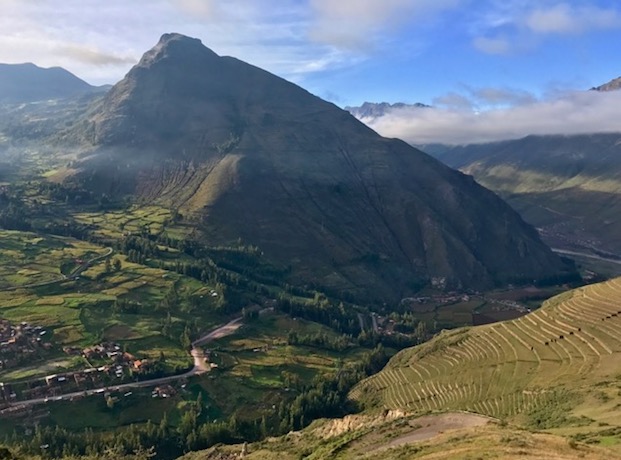Potato Park, Peru
In the Sacred Valley of Peru lies the Biocultural Heritage Territory of the 12,000 hectare Potato Park, close to the city of Cusco, a former capital of the Inca Empire. There, in April 2017, agroecology experts representing mountain communities in nine countries of Central and Eastern Asia spent nearly a week with Peruvian farmers, guardians of more than one thousand potato varieties. Hosting the delegation was a Peruvian non-profit, Asociación ANDES. ANDES works with local communities in the Sacred Valley to develop strategies to protect indigenous resources, knowledge, and rights.
The extraordinary visit to Potato Park in April, 2017, was officially the 4th Learning Exchange of the International Network of Indigenous Mountain People. It was the most recent exchange in a series of “Walking Workshops” co-sponsored by INMIP and the International Institute for Environment and Development (IIED). The previous Walking Workshops took place in Bhutan (2014), Tajikistan (2015), and China (2016).
The Peruvian mountain community helping to host the 4th Walking Workshop comprised representatives from villages within the Potato Park and nearby Quechua communities, Lares and Apurimac. These farmers are profoundly dedicated to conserving their natural and cultural resources, calling fully upon their traditional knowledge and spiritual values to nourish their families from the crops they have grown and loved for centuries.
As explained by the local leaders, three interconnected realms comprise the Sacred Valley world: the wild, the spiritual, and the human. Long ago these three communities agreed to share the world with reverence, responsibility, and reciprocity. Only when these three communities work together in harmony does good live in the world. This way of being in the world of the Sacred Valley naturally extends to growing and consuming food. This is sumaq kausay, beautifully harmonious and healthy living, how their people should live in concord with Mother Earth, Pachamama, as they meet their essential daily needs.
Return to the November 2017 Newsletter Index


